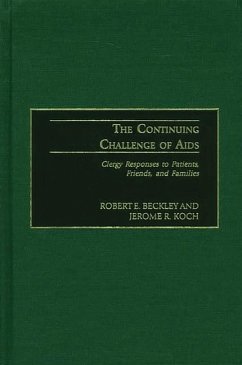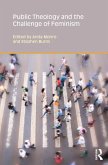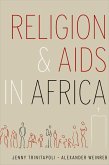As the AIDS crisis spread and gained momentum, Protestant, Catholic, and Jewish clergy in the United States and the United Kingdom became involved in sometimes surprising ways. Using quantitative and qualitative data from the early 1990s and from follow-up interviews conducted later in the decade, the authors show that many clergy became involved in the pastoral care for and counseling of people stigmatized by AIDS, including gay and bisexual men, despite expressions of antipathy from their denominations. Sociological theories concerning clergy roles, social movements, social space, and social capital provide a framework for analyzing the initial findings and the data from subsequent interviews. The study concludes that this small but dedicated group of clergy who ministered to the needs of this suffering population were part of a social movement that addressed a community problem despite both obstacles and opposition.
Using data obtained from structured interviews and responses to questionnaires concerning clergy responses to real and hypothetical situations involving people who are HIV-positive or who have AIDS, the authors illustrate how clergy and organized religious groups confronted a new and acute fatal illness that was initially associated with stigmatized behavior. They demonstrate that many clergy saw their roles as advocates for these individuals and as providers of pastoral and spiritual care, in spite of the rhetoric of conservative and fundamentalist clergy who condemned the victims as an example of the wrath of God against gay and bisexual men. The study also shows that even those who were less actively engaged in AIDS pastoral care and counseling demonstrated tolerance for those affected by it. Follow-up interviews indicate, finally, that as AIDS became more of a chronic illness, the social movement to provide religious and spiritual care and counseling began to wane.
Using data obtained from structured interviews and responses to questionnaires concerning clergy responses to real and hypothetical situations involving people who are HIV-positive or who have AIDS, the authors illustrate how clergy and organized religious groups confronted a new and acute fatal illness that was initially associated with stigmatized behavior. They demonstrate that many clergy saw their roles as advocates for these individuals and as providers of pastoral and spiritual care, in spite of the rhetoric of conservative and fundamentalist clergy who condemned the victims as an example of the wrath of God against gay and bisexual men. The study also shows that even those who were less actively engaged in AIDS pastoral care and counseling demonstrated tolerance for those affected by it. Follow-up interviews indicate, finally, that as AIDS became more of a chronic illness, the social movement to provide religious and spiritual care and counseling began to wane.









